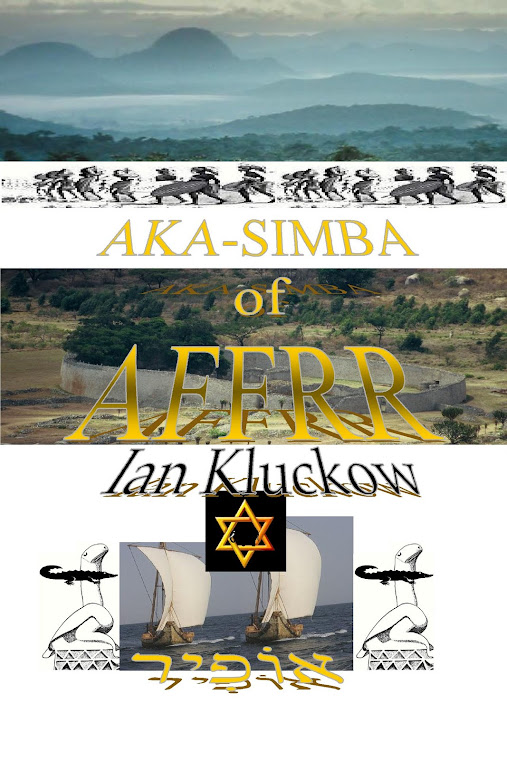I discovered at the outset of my journey to write a factual, (AKA-SIMBA OF AFFRR A HISTORY OF THE GREAT ZIMBABWE MYSTERY) as well as a fictional account on the subject, (AKA-SIMBA OF AFFRR) that history is generally a politically or ethnically correct, so called record, (in many cases fictitious) created wilfully and intentionally by conquerors over the ages. In its time this ‘created history’ becomes the universally accepted truth. Sometimes it even becomes a religion. Professionals, politicians and in particular priests, teachers, historians and archaeologists who favour the current ‘official idea’ and are able to thrive or even prosper from its propagation and willingly support the ‘official version.’ They climb upon the mountain of fictitiously created knowledge and quote from it as ‘scientific record.’ Sooner or later legendary personalities become almost godlike, ideas like the ‘flat-earth,’ the Giza pyramids being built solely by the hauling of stone blocks, or the mighty Monomatapa become popular, undisputed and accepted fact. Dissenters like Galileo with his heliocentric theory become the subject of ridicule or worse. The real history as opposed to the ‘officially accepted version’ more often than not still remains a mystery.
By his own admission Prof. Thomas Huffman, head of Archaeology at the University of Witwatersrand in South Africa, acknowledges that a 1906 Bantu interpretation as the builders of the Great Zimbabwe is an idea, “- which was strenuously rejected by the public, is a rejection still found today.” Indeed many people do still question or reject the Iron Age Bantu theories of many modern scientists. There are good reasons for this, the first being the fact that Huffman and others of his school of thinking have more or less consistently ignored history and Lemba oral traditions and claims. The second is that the theories of Huffman and others like him, with their willingness and strenuous efforts to peddle ideas disguised as scientific truth, i.e. that Shona society today is a version of what pertained six hundred years ago, simply do not sit well or make common sense to those who know Africa and are quick to see through scientific mumbo-jumbo.
The novel is a work of historical fiction and comprises three books in one, two modern accounts set in the Zimbabwe of today and an ancient account. The ancient story is an attempt to bring an unsolved mystery to the forefront once again through the discovery of an ancient burial on a privately owned ranch in Southern Zimbabwe. The modern sections attempt to describe the trials and tribulations of love and life on a Zimbabwean ranch; the Rhodesian civil war; its aftermath; the horrors of greed; contempt for the rule of law and violation of conventions and agreements through two decades of dictatorship in Zimbabwe among descendants of the ancients. There is an attempt on the part of the author to have politics step-aside to reveal the historical truth through the discoveries. But politics always dominates southern Africa history. Thus the story describes how the rancher becomes acutely aware of a vast cover-up, and the political implications and the effects of the find upon contemporary historical records.
The discerning reading public relish an ancient mystery or epic journey as much now as they did in Rider Haggard’s time. As well as being a gambol through history, there are moments of intimacy, close encounters, abduction and a fair share of murder. In particular an attempt is made to uncover portions of the vast sweep of concealed history from 1300 BC to the current era of political unrest in Zimbabwe. This is an epic saga likely to appeal to a broad range of global readers who enjoy history, the profound, the evocative and the legendary and mythical descriptions of life as it most likely was, once upon a long time ago in AFFRR - the (Semitic /Arabic) root word of Africa.


No comments:
Post a Comment